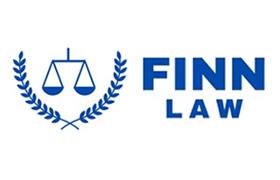Glenmont Criminal Lawyer, New York, page 2
Sponsored Law Firm
-
 x
x

Click For More Info:
-
Finn Law Offices
12 Sheridan Ave. Albany, NY 12207» view mapAccident & Injury and Criminal Defense Action-Oriented Legal Advocacy
At Finn Law Offices, our attorney relies upon his experience and dedication to protect your rights in a personal injury, employment law, criminal defense or civil rights case.
800-872-6030
Mark S. Jordan
Personal Injury, DUI-DWI, Traffic, Wills & Probate
Status: In Good Standing *Status is reviewed annually. For latest information visit here
Holly Ann Trexler
Criminal
Status: In Good Standing *Status is reviewed annually. For latest information visit here Licensed: 27 Years
Elena C. Vaida
Real Estate, Traffic, Family Law, Criminal, Accident & Injury
Status: In Good Standing *Status is reviewed annually. For latest information visit here Licensed: 45 Years
 Ryan M. Finn Albany, NY
Ryan M. Finn Albany, NY AboutFinn Law Offices
AboutFinn Law Offices